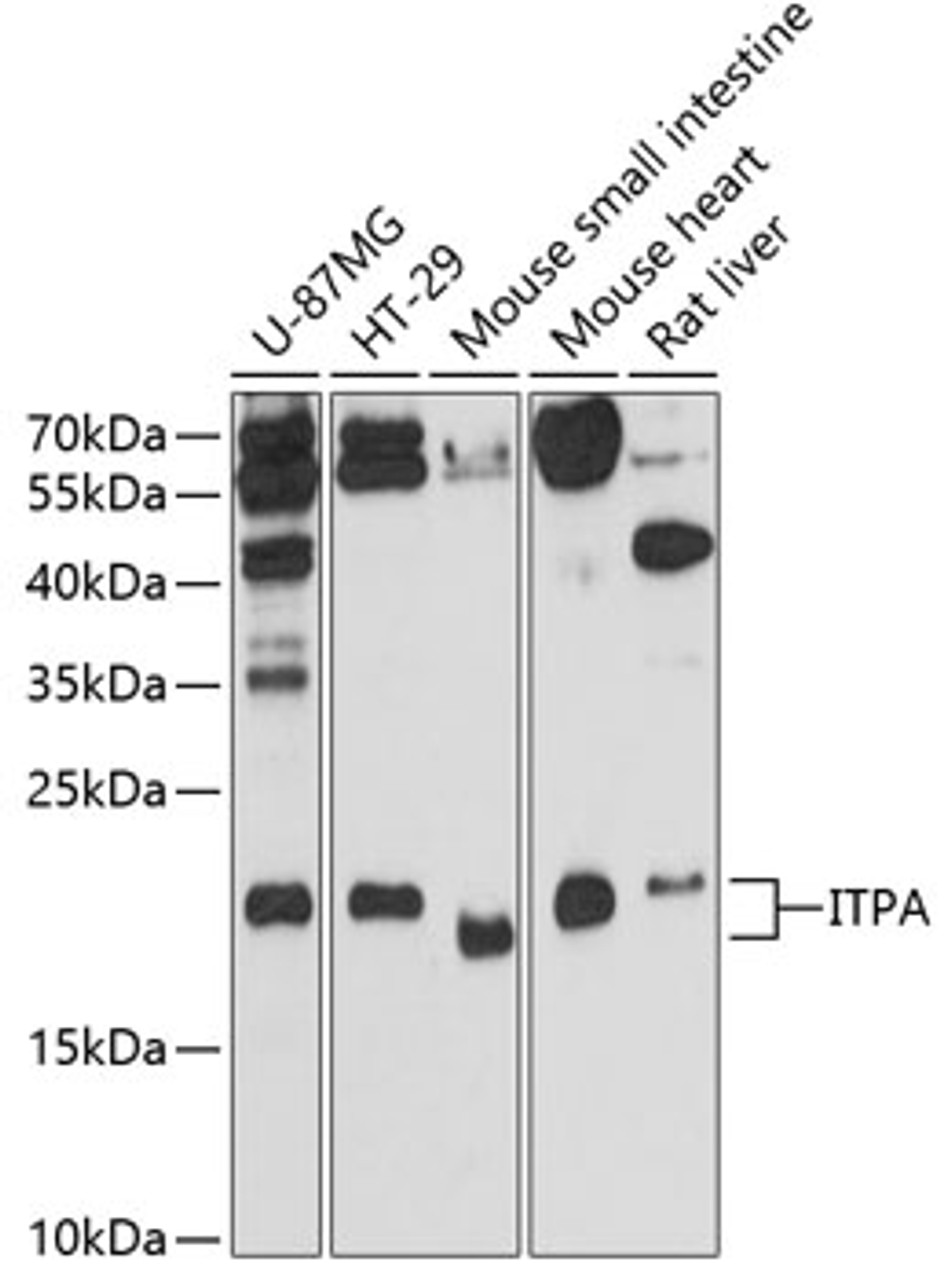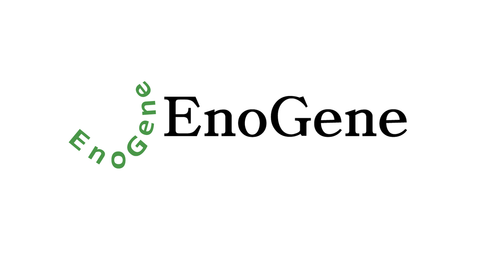Product Description
ITPA Antibody | 14-317 | ProSci
Host: Rabbit
Reactivity: Human, Mouse, Rat
Homology: N/A
Immunogen: Recombinant fusion protein containing a sequence corresponding to amino acids 1-194 of human ITPA (NP_258412.1) .
Research Area: Signal Transduction
Tested Application: WB
Application: WB: 1:500 - 1:2000
Specificiy: N/A
Positive Control 1: U-87MG
Positive Control 2: HT-29
Positive Control 3: Mouse small intestine
Positive Control 4: Mouse heart
Positive Control 5: Rat liver
Positive Control 6: N/A
Molecular Weight: Observed: 21kDa
Validation: N/A
Isoform: N/A
Purification: Affinity purification
Clonality: Polyclonal
Clone: N/A
Isotype: IgG
Conjugate: Unconjugated
Physical State: Liquid
Buffer: PBS with 0.02% sodium azide, 50% glycerol, pH7.3.
Concentration: N/A
Storage Condition: Store at -20˚C. Avoid freeze / thaw cycles.
Alternate Name: Inosine triphosphate pyrophosphatase {ECO:0000255|HAMAP-Rule:MF_03148}, ITPase {ECO:0000255|HAMAP-Rule:MF_03148}, Inosine triphosphatase {ECO:0000255|HAMAP-Rule:MF_03148}, 36119 {ECO:0000255|HAMAP-Rule:MF_03148}, Non-canonical purine NTP pyrophosphatase {ECO:0000255|HAMAP-Rule:MF_03148}, Non-standard purine NTP pyrophosphatase {ECO:0000255|HAMAP-Rule:MF_03148}, Nucleoside-triphosphate diphosphatase {ECO:0000255|HAMAP-Rule:MF_03148}, Nucleoside-triphosphate pyrophosphatase {ECO:0000255|HAMAP-Rule:MF_03148}, NTPase {ECO:0000255|HAMAP-Rule:MF_03148}, Putative oncogene protein hlc14-06-p, ITPA {ECO:0000255|HAMAP-Rule:MF_03148}, C20orf37
User Note: Optimal dilutions for each application to be determined by the researcher.
BACKGROUND: This gene encodes an inosine triphosphate pyrophosphohydrolase. The encoded protein hydrolyzes inosine triphosphate and deoxyinosine triphosphate to the monophosphate nucleotide and diphosphate. This protein, which is a member of the HAM1 NTPase protein family, is found in the cytoplasm and acts as a homodimer. Defects in the encoded protein can result in inosine triphosphate pyrophosphorylase deficiency which causes an accumulation of ITP in red blood cells. Alternate splicing results in multiple transcript variants.
 Euro
Euro
 USD
USD
 British Pound
British Pound
 NULL
NULL














